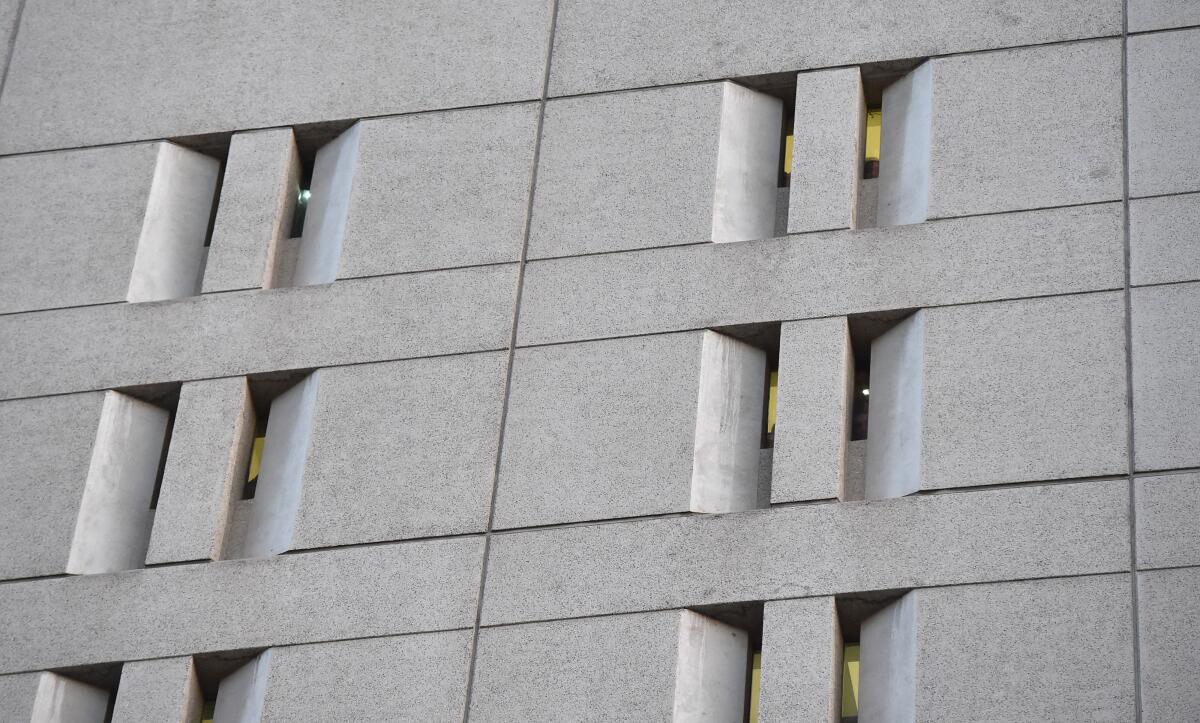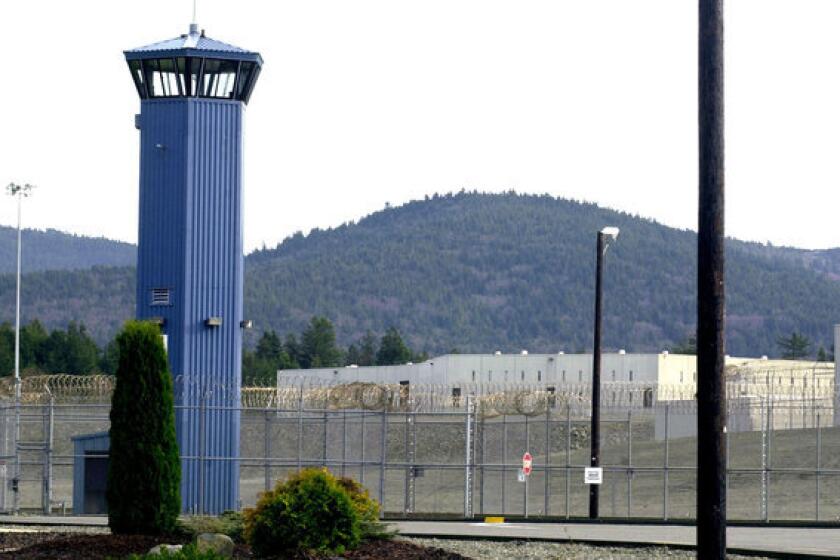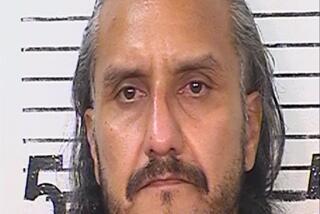‘Big Mike’ Lerma, reputed Mexican Mafia member, charged with ordering murder at L.A. prison

Federal prosecutors have charged a reputed member of the Mexican Mafia with ordering the murder of an inmate at a Los Angeles federal detention center and three associates of the prison-based organization with carrying it out.
Michael “Big Mike” Lerma, 65, was already under indictment at the Metropolitan Detention Center in downtown Los Angeles, accused of overseeing an extortion against drug dealers in his hometown of Pomona, when he directed three underlings to kill an inmate who had failed to repay a drug debt, according to a new indictment made public Thursday.
The inmate was found stabbed and strangled in his cell in June 2020.
The indictment, which broadens an earlier one filed three years ago, describes a system by which the Mexican Mafia wrings a “tax,” or cut of profits, from drug dealers and other criminals by harnessing the loyalty of Latino gang members on California’s streets and within its prisons.
The Mexican Mafia comprises about 140 men drawn from the top ranks of Southern California’s Latino street gangs. Upon being inducted into the organization, members of the Mexican Mafia — nearly all of whom are imprisoned — retain control of their original gangs, taxing their rackets and directing their members to commit extortion, assaults and murders, law enforcement authorities say.
Lerma, whose attorney had no immediate comment on the new indictment, has twice been convicted of murder, according to parole transcripts reviewed by The Times. He joined the Pomona 12th Street gang at 12, dropped out of school after the 11th grade and joined the Marines, but he was kicked out after committing a murder at 18. “Myself, personally, I’ll tell you I was a big embarrassment to the Marine Corps,” he told the parole board.
Jose Luis Loza of Whittier is sentenced after a trial that served as a window into arguably Southern California’s most powerful criminal organization.
While serving a five-year term, Lerma acknowledged that “for lack of a better phrase, I learned how to think and be a convict.” He was released in 1979, having heard from other inmates about “selling and dealing drugs, making money — fast, easy money,” he told the board, “and that’s what I decided to do.”
In 1982, Lerma shot to death a man in Sacramento County who had robbed him of heroin and a power tool. He has ever since been serving a sentence of 15 years to life for murder.
Prison officials classified Lerma as a member of the Mexican Mafia in 1995, but he has contested this characterization, telling the parole board, “I’ve always denied being a member of any prison gang or being involved in any prison gang.”
The new indictment, however, describes Lerma as a “full” member of the Mexican Mafia who, since at least 2012, has taxed drug dealers in Pomona and its surrounding neighborhoods under fear of assault or death. And within the walls of Calipatria State Prison in Imperial County and the Metropolitan Detention Center in downtown Los Angeles, Lerma exacted a “thirds” tax of all narcotics smuggled into and sold within the facilities, the indictment says.
When an inmate purchases drugs or other contraband inside prison, money is typically exchanged outside prison, between representatives of both the seller and the buyer. The seller will owe a tax on the sale to the Mexican Mafia member who controls the prison in which he is housed. He will typically send the tax payment to the Mexican Mafia member’s associate outside prison.
In Lerma’s case, the indictment says, a Pomona woman, Cheryl Perez-Castaneda, collected taxes from Calipatria prison sales and funneled them to Lerma through his inmate trust account and Green Dot prepaid money cards. Perez-Castaneda has pleaded guilty to racketeering conspiracy and was sentenced to 12 years in prison.
Lerma was first indicted in federal court in 2018. Brought from state prison to the federal Metropolitan Detention Center, or MDC, Lerma seized control of the facility and instituted a discipline system, prosecutors said, with infractions punished, according to their severity, with verbal warnings, beatings, stabbings, a “smash out” — an assault so severe the inmate must be transferred to a different unit — and murder.
Once a Mexican Mafia member places a “green light” on a particular inmate, “Sureños” — members of Latino gangs loyal to the Mexican Mafia — are obligated to attack or kill him on sight.
Lerma’s primary enforcers at the MDC, the indictment says, were three reputed Pomona gang members: Carlos “Popeye” Gonzalez, Jose “Swifty” Valencia Gonzalez and Juan “Squeaks” Sanchez. On June 28, 2020, the three men entered the cell of an inmate who had failed to repay a drug debt and killed him on Lerma’s orders, the indictment says.
An attorney for Sanchez said he had yet to see the indictment and declined to comment. Lawyers for Gonzalez and Valencia Gonzalez didn’t immediately return a request for comment.
The indictment identifies the victim only by his initials — S.B. — but coroner records show that an inmate, Steve Bencom, was pronounced dead from stab wounds and ligature strangulation on June 29, 2020.
Bencom, 39, had been sentenced five months earlier to 10 years in federal prison for trafficking methamphetamine, an offense he committed while serving a 37-year term for robbery at Centinela State Prison in Imperial County, according to a government sentencing memo. Bencom had used a contraband cellphone to sell and distribute drugs behind bars.
More to Read
Sign up for Essential California
The most important California stories and recommendations in your inbox every morning.
You may occasionally receive promotional content from the Los Angeles Times.











